Gen. Prayuth Chan-ocha
Prime Minister
Royal Thai Government
Bangkok, Thailand
RE: Drop Charges against Phuketwan Journalists Alan Morison and Chutima Sidasathian
Dear Prime Minister Prayuth Chan-ocha,
We write to you as international and regional organisations working to protect the rights to freedom of expression and freedom of the media to raise serious concerns about the Royal Thai Government's decision to seek the prosecution of Phuketwan editor Alan Morison and reporter Chutima Sidasathian for criminal libel and for violating the Computer Crime Act (CCA).
We urge the government to immediately and unconditionally withdraw the criminal libel complaint and to have the CCA charges dropped. Proceeding with the trial of these two journalists, slated to start on July 14, 2015, would be in violation of Thailand's commitments under international law.
The complaint by the Royal Thai Navy focuses on Phuketwan's website posting from July 17, 2013, concerning the smuggling of Rohingya, an ethnic minority group in Myanmar facing systemic discrimination and violence.
Phuketwan's post reproduced one paragraph from an article (''Special Report: Thai authorities implicated in Rohingya Muslim smuggling network'') by another media organisation, Reuters, which has not been contested by the Navy.
The use of criminal defamation is an unnecessarily heavy-handed response to any concerns the Navy may have with the article and contrary to free expression rights.
Rather than prosecuting the Phuketwan journalists, the Thai government should withdraw these charges and adopt an alternative rights-respecting approach to address its concerns with Phuketwan.
Such alternative could see the Navy instead seek a dialogue with Phuketwan, or request an opportunity to publish the Navy's account of the matter, or issue a statement to rebut or clarify the allegations made.
We believe it is not too late for the Thai government to undertake such an alternative to criminal prosecution, which would demonstrate respect for fundamental rights on a matter of concern to many foreign governments.
Thailand's prosecution of the Phuketwan journalists would violate its obligations under article 19 of the International Covenant on Civil and Political Rights (ICCPR), which provides that ''everyone shall have the right to freedom of expression; this right shall include the freedom to seek, receive and impart information and ideas of all kinds.''
Permissible restrictions on the right to freedom of expression do not pertain in this case. Any restrictions on the right to freedom of expression must meet a strict three part test: they must be provided for by law; must be done for the purpose of protecting only specified public interests:
national security, public order, or public health or morals, or the rights or reputations of others; and must be proportionate as well as demonstrably and strictly necessary to meet those interests (i.e. being the least restrictive measure to achieve the specified purpose).
The United Nations Human Rights Committee, which monitors state compliance with the ICCPR, in General Comment No. 34, paragraph 35, states that ''when a State party invokes a legitimate ground for restriction of freedom of expression, it must demonstrate in specific and individualised fashion the precise nature of the threat, and the necessity and proportionality of the specific action taken, in particular by establishing a direct and immediate connection between the expression and the threat.''
Yet neither the Thai Navy nor the Thai government has done this, nor explained why other actions short of the legal action initiated against the two journalists at Phuketwan would suffice to meet their concerns.
Furthermore, paragraph 42 of General Comment No. 34 notes that ''The penalisation of a media outlet, publishers or journalist solely for being critical of the government or the political social system espoused by the government can never be considered to be a necessary restriction of freedom of expression.''
Finally, in paragraph 47 of General Comment No. 34, the Human Rights Committee calls on states to decriminalise defamation and libel and has stressed that such laws must never be used to stifle freedom of expression.
Our organisations, along with an increasing number of governments, concur with the UN Human Rights Committee that criminal defamation laws should be abolished because criminal penalties infringe on free expression and are always disproportionate punishments for reputational harm.
Criminal defamation laws are open to easy abuse, resulting in very harsh consequences, including imprisonment.
As repeal of criminal defamation laws in an increasing number of
countries shows, such laws are not necessary for the purpose of protecting reputations.
The Johannesburg Principles on National Security, Freedom of Expression and Access to Information, an influential set of principles issued in 1996 by international legal experts, state that ''No one may be punished for criticising or insulting . . . public officials, . . . unless the criticism or insult was intended and likely to incite imminent violence.''
Further, by continuing on this course, the Thai government is acting contrary to its own policy enunciated in the government's national report to the Universal Periodic Review (UPR) process of the UN Human Rights Council on October 5, 2011.
The Thai government's presentation stated that:
The right to freedom of opinion and expression is the bedrock of Thailand's democratic society.
The Constitution guarantees freedom of a person to express opinions, make speeches, write, print and publicise; prohibits the closure, interference or censorship of a newspaper or other mass media; and bans politicians from owning media outlets.
Thailand also plays host to numerous international press agencies, civil society organisations and international NGOs, all of which attest to the free atmosphere that is conducive to news reporting and the free flow of information.
Put simply, by taking legal action against Phuketwan, the Thai government is threatening precisely the rights that the government itself described as the ''bedrock of Thailand's democratic society.''
The use of the Computer Crime Act in this case is also particularly troubling, especially since this appears to be the first time that one of the services of the Thai armed forces has ever used the CCA against journalists.
Our organisations urge that this draconian, rights-abusing law should be repealed or amended to comply with international law and standards instead of being used as a tool to silence journalists writing for newspapers, blogs, or other media.
We are concerned that article 14(1) of the CCA under which the Phuketwan journalists are charged is vaguely worded and overly broad, and is clearly being used by the government in this case to suppress media freedom and silence the voice of Phuketwan.
Alan Morison and Chutima Sidasathian have been unfairly charged with serious offenses for simply doing their jobs in a system that authorities claim is committed to respecting freedom of expression and the media.
Their actions should not constitute a crime. We sincerely hope that you will recognise this and request an immediate withdrawal of all criminal complaints and charges against the Phuketwan journalists, seeking an end to the prosecution.
We look forward to hearing from you on this important matter.
Sincerely,
Brad Adams
Asia Director
Human Rights Watch
Evelyn Balais-Serrano
Executive Director
Asia Forum for Human Rights and Development (Forum Asia)
Richard Bennett
Director, Asia-Pacific
Amnesty International
Karim Lahidji
President
International Federation for Human Rights (FIDH)
Edgardo Legaspi
Executive Director
Southeast Asian Press Alliance (SEAPA)
Charles Santiago
Chairperson
ASEAN Parliamentarians for Human Rights
Ian Seiderman
Legal and Policy Director
International Commission of Jurists
Gerald Staberock
Secretary General
World Organisation Against Torture (OMCT)





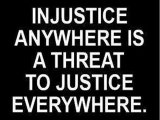
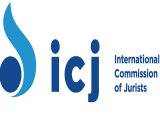
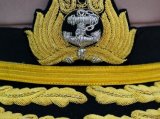
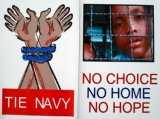
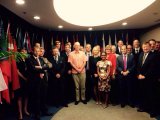





Dear Ed
I really liked this strong letter of support.
There is so much to agree with including the specific criticism of how vague and broad the Computer Crimes Act 2007 is.
As I read the open letter with approval I found myself thinking that there is a conspicuous absence of any party that is publicly supporting the actions of the Royal Thai Navy officers who were behind these charges.
Ian Yarwood
Solicitor - Perth, Western Australia
Posted by Ian Yarwood on July 9, 2015 07:52